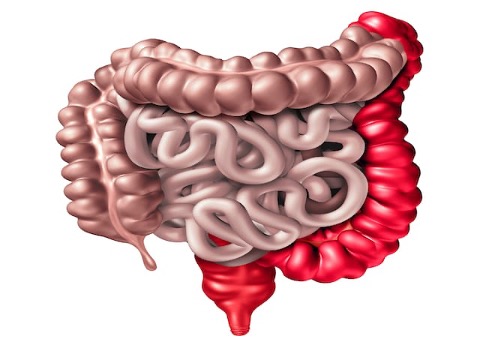Francis Crick researchers reveal pathways linking intestinal inflammation and colitis
April 17, 2024
Source: drugdu
 361
361

Affecting over 500,000 people in the UK, IBD comprises Crohn’s disease and ulcerative colitis
The study, published in Nature Immunology, could help identify new ways to treat inflammatory bowel disease (IBD).
Collectively known as IBD, Crohn’s disease and ulcerative colitis are incurable conditions that involve excessive inflammation in the gut and affect over 500,000 people in the UK, according to Crohn’s & Colitis UK.
In this study, researchers deleted two proteins, c-Maf and Blimp-1, from T cells in mice to understand their role in maintaining gut health via IL-10.
Mutations in the cytokine IL-10 or its receptor can result in IBD in children and it has previously been shown that c-Maf and Blimp-1 can drive the activity of the IL-10 gene in T cells.
They found that, when combined with an environmental trigger – an infection with the Helicobacter hepaticus bacterium – IL-10 activity in T cells was reduced and inflammation progressed.
After 14 days, researchers revealed that when either c-Maf or Blimp-1 was missing, moderate colitis was induced and severe colitis occurred in mice when both proteins were removed.
Additionally, results showed that the proteins were protective against inflammation on IL-10, acting through different immune pathways that impact T cell activities.
After studying colon biopsies of patients with IBD, researchers found similarities in the genes expressed in humans and mice with bacteria-induced inflammation resulting from the absence of c-Maf or Blimp-1.
The team plans to investigate how intestinal inflammation can develop and progress to colitis in response to different microorganisms.
Anne O’Garra, head of the Immunoregulation and Infection Laboratory, the Crick, commented: “Our findings show that Blimp-1 and c-Maf not only co-operate to regulate IL-10 expression to prevent severe bacteria-induced colitis but reinforce this control by their distinct actions on distinct inflammatory T cell molecules.
“We hope that these studies will enable further dissection of the roles of key genes and pathways relevant to IBD in humans.”
Read more on
- Gusekirumab Injection Accepted by CDE, Multiple Pipelines Advancing Simultaneously March 4, 2026
- Yifan Pharmaceutical’s teriparatide injection has been accepted by the CDE (Center for Drug Evaluation), adding a new domestic player to the osteoporosis treatment field March 4, 2026
- //news.yaozh.com/archive/47318.html PD-1 sales surge March 4, 2026
- A major breakthrough! Roche’s oral BTK inhibitor achieves its third Phase III clinical trial victory, a game-changer in the multi-billion dollar MS (manufactured pharmaceuticals) market. March 4, 2026
- GB19 Injection Approved for Clinical Trials of Cutaneous Lupus Erythematosus March 4, 2026
your submission has already been received.
OK
Subscribe
Please enter a valid Email address!
Submit
The most relevant industry news & insight will be sent to you every two weeks.



